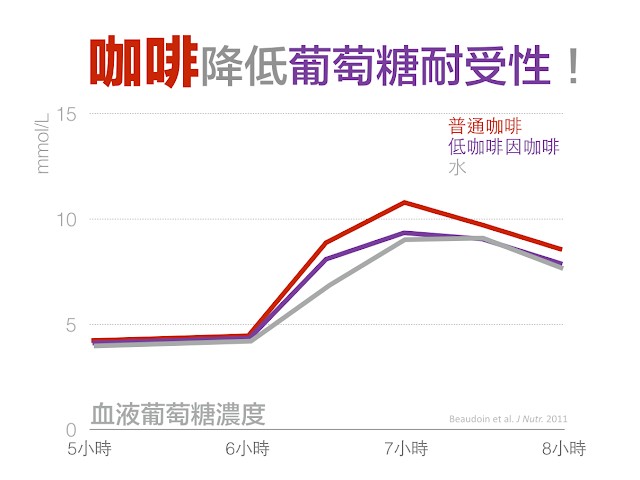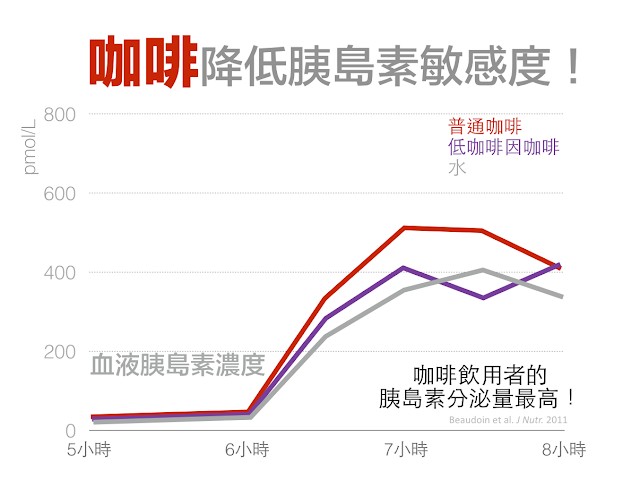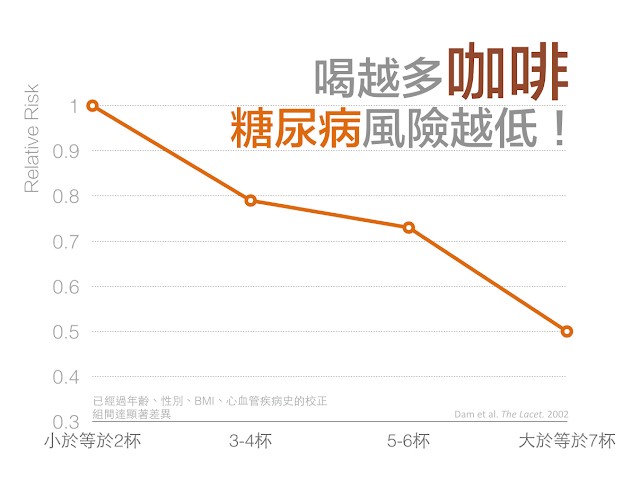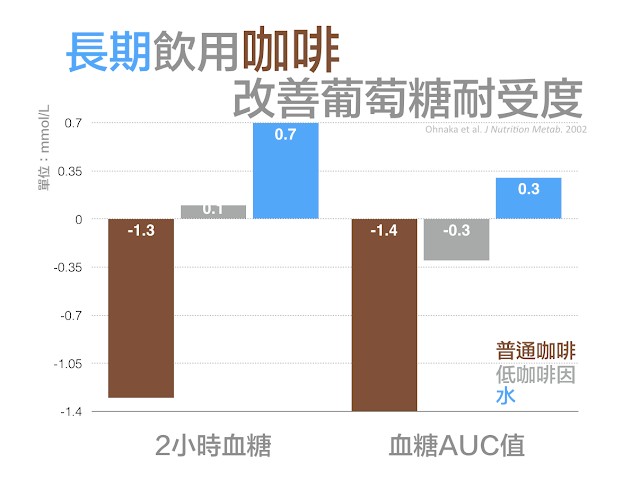Coffee and health | Diabetes can't drink coffee? Does coffee increase the risk of diabetes?
Professional coffee knowledge exchange more coffee bean information please follow the coffee workshop (Wechat official account cafe_style)
Recently, a fan asked the editor: "is it true that diabetics can't drink coffee on the Internet?" This situation is mentioned: the news media say that it is good to eat XX, and then they say that it is not good to eat XX. Contradictory nutrition concepts spread in the media. As a result, the truth becomes more and more unclear, and the public is at a loss as to what to do.
In order to solve this mystery, the editor will guide you to read some scientific literature. Will coffee increase or reduce the risk of diabetes? Can people with diabetes drink coffee or not?

Greasy dinner with coffee
First of all, let's take a look at how the study of greasy meals with coffee is done:
In 2011, Canadian scholar Beaudoin and others recruited 10 healthy young men to buy them a special drink as a substitute for a greasy meal.
This cup of "special" ingredients, consisting of palm oil and soybean oil, heated in the microwave with warm water, emulsifier and artificial sweetener aspartame, sounds delicious. I don't know how much Beaudoin paid the subjects.
Five hours after they pinched their noses and swallowed the grease, they drank regular coffee, decaffeinated coffee, and water (control group) and underwent an oral glucose tolerance test.


The results showed that people who drank coffee had higher blood sugar levels and more insulin secretion. This reflects a decline in their insulin sensitivity-that is, insulin resistance, and the body needs to secrete more insulin so that the liver, muscle and fat cells can store nutrients and maintain constant sugar in the blood.
This is not alone: in 2002, Keijzers used the most accurate measurement tool, Hyperinsulinemic-euglycemic clamp, and found that intravenous caffeine reduced insulin sensitivity by as much as 15 per cent.
It seems that the killer of diabetes has been found, so I'll tell you not to drink too much coffee. Let go of the cup of Xing X in your right hand and the Ken X chicken in your left hand!
OK, the conclusion is generated! People with diabetes can't drink coffee-- no way!
Only saw "crackle" a sound ~ contradiction appeared!
We extended our vision from the laboratory to the large-scale national population survey, only to find that things looked completely different.
Dam and Feskens published a generation study of 17111 Dutch people in the 2002 issue of the journal Lancet. They use questionnaires to survey people's living habits, including, of course, how many cups of coffee they drink a day.

They found that people who drank more than seven cups of coffee a day had about half the risk of developing diabetes as those who drank less than two cups.
Dam further pointed out that people who drink more coffee tend to be obese, smoke more, have a lower level of education and lead an unhealthy lifestyle. Interestingly, when these factors were included in the statistical model, coffee drinking was more effective in preventing diabetes.
This is by no means a single case. A comprehensive analysis of nine observational studies and a total of 190000 people also found that more than seven cups a day can reduce the risk of diabetes by 35%.
Isn't it going to be a fight? Short-term studies say coffee is not good, and observational studies say coffee is good. Who should we listen to?

16-week instant coffee challenge
In 2012, Ohnaka from Japan and others published the results of a long-term clinical trial, which many experts thought would resolve the controversy over coffee.
Ohnaka recruited 49 middle-aged men and divided them into three groups:
Five cups of instant coffee a day.
Five cups of decaf instant coffee a day.
No coffee.
At 8 and 16 weeks, the subjects were tested with oral glucose plus insulin twice.
The results showed that the oral glucose test scores of men who drank coffee were significantly better than at the beginning of the study, while there was no change in the decaffeinated and non-caffeinated groups. This meant that the coffee group had increased insulin sensitivity over the course of 16 weeks.

Although the study of greasy meals tells us that insulin sensitivity decreases within hours of drinking coffee, the effect disappears in the long run.
What's more, the coffee group lost 1.1 kilograms of weight and 1.5 centimeters of waist circumference in 16 weeks. On the contrary, the weight of the decaf group increased slightly. Drinking coffee can also lose weight! )
(note: the effect of coffee on insulin sensitivity may come from changes in waistline and weight, but at least we can be sure that drinking five cups of coffee a day for four months won't hurt your diabetes. )
Put it all together.
Observing physical changes in minutes and hours may come to a very different conclusion from that seen in weeks, months, and years.
The controversy over coffee also stems from the same situation: the short-term and long-term effects are completely different.
Caffeine acts on the Adenosine receptor, a chemical that controls our sleep in the brain. Caffeine uses this relationship to block our desire to sleep and boost our spirits.
Adenosine receptors are also involved in carbohydrate metabolism in the body, and blocking it is tantamount to blocking the carbohydrate metabolic pathway. Coupled with the adrenaline-stimulating effect of caffeine, it's no wonder that insulin sensitivity decreases within hours of drinking caffeine.
But will this cause long-term damage? According to the existing literature, it will not.
Jumping out of the "hour" framework, from the above 16-week study, or even longer-term generation surveys, we have seen that drinking coffee is not only harmless, but also can even reduce the risk of diabetes.
Scholars speculate that this is because coffee is rich in a variety of natural antioxidants, which can reduce oxidative stress in the body and thus increase insulin sensitivity. Chlorogenic acid (Chlorogenic acids) in coffee has also been shown to reduce insulin and blood sugar in clinical trials.
Conclusion
The paragraph of the conclusion in the scientific literature often reads: "We need to do more research to confirm this doubtful point."
This clich é is equivalent to an unsaid clich é. In fact, it reflects an important concept that scientific people must know: a document and a study are only a small piece of jigsaw puzzle, not enough to present the whole truth.
To peep at the sky, or to infer from a literature, the conclusions are often inaccurate.
From the current evidence, long-term coffee drinking has a protective effect on diabetes, although the detailed mechanism is not clear, it is speculated that it is related to the effect of antioxidants.
In addition, I would like to remind you that all the above coffee-related studies use "plain coffee", that is, black coffee without sugar, milk or cream.
Why are there so many doctors' advice on the Internet that sugar lovers had better not drink coffee? It is because the doctor is worried that the patient does not understand coffee and mistakenly drinks flavored coffee with other additives such as syrup. Take a long view, coffee is actually a good thing!
Important Notice :
前街咖啡 FrontStreet Coffee has moved to new addredd:
FrontStreet Coffee Address: 315,Donghua East Road,GuangZhou
Tel:020 38364473
- Prev

The differences and characteristics of the three major coffee cultural circles in the world-Japanese coffee, Nanyang coffee and North American coffee
Professional coffee knowledge exchange more coffee bean information please follow the coffee workshop (Wechat official account cafe_style) North Asia (Japan), one of the two major coffee cultural circles in Asia | mild, sweet and slightly bitter coffee was introduced to Japan in the 16th century, and in the late Meiji era (1888), the first teahouse selling coffee appeared in Japan. Since then coffee culture has gradually spread in Japan.
- Next

Central American coffee beans have unique environmental advantages. This paper introduces the differences and characteristics of coffee in several regions.
Professional coffee knowledge exchange more coffee bean information please follow the coffee workshop (Wechat official account cafe_style) Central American high-quality coffee beans black gold-"coffee" unique environmental advantages give birth to good coffee in Central America, one of the four major coffee producing areas in the world, with the natural advantages of sunshine, land and mountains, coupled with an adequate working population, make the area a growing area.
Related
- How did the Salvadoran coffee industry develop in Central America?
- What exactly does the golden cup extraction of coffee mean?
- The Origin of Coffee flower
- [2023 Starbucks World Earth Day] there are more meaningful things besides free Starbucks coffee!
- What kind of coffee is there in Spain? 9 Flavors of Spanish Coffee
- Aromatic African coffee| Kenya's coffee culture and historical production area
- Liberica Coffee Bean knowledge: the characteristics of Liberian Coffee beans of the three original species of Coffee beans
- The origin and formula of Spanish latte introduces the taste characteristics of Bombon coffee in Valencia, Spain.
- How to adjust the solution of over-extracted coffee
- What is the tasting period of coffee beans? What is the period of coffee and beans? How should coffee wake up and raise beans?

